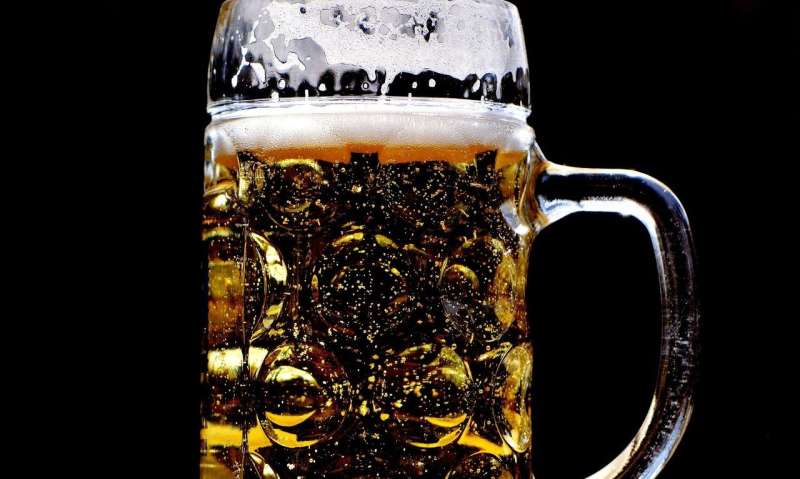Credit: CC0 Public Domain
Internet-based interventions may be effective in curbing various patterns of adult problem drinking in both community and health care settings, according to a study published December 18 in the open-access journal PLOS Medicine by Heleen Riper of VU University in Amsterdam, the Netherlands, and colleagues. As noted by the authors, their large-scale meta-analysis of trial data suggests that Internet-based interventions for adult problem drinking (iAIs) could serve as a first step toward changing problem-drinking behaviors and seeking more intensive treatment if needed.
Global estimations continue to show increasing morbidity, mortality and social harm caused by all types of problem drinking. Although brief face-to-face interventions are effective, they are rarely used. Internet-based interventions could overcome this treatment gap because they are more accessible and scalable, and they are more acceptable to problem drinkers. In the new study, Riper and colleagues investigated the effectiveness and moderators of treatment outcomes in Internet-based interventions for adult problem drinking. The researchers performed systematic searches in medical and psychological databases to find trails quantifying the effect of iAIs on problem drinking. They analyzed individual patient data for 14,198 adults who participated in 19 randomized controlled trials and exhibited various profiles of problem drinking when the studies began. They also obtained post-treatment data for 8,095 participants.
The results show that Internet-based alcohol interventions in both community and health care populations are effective in reducing mean weekly alcohol consumption (from 381 to 329 grams of ethanol) and patients receiving iAIs were more likely than controls to achieve adherence to low-risk drinking limits (odds ratio [OR] of treatment response = 2.20, 95% confidence interval [CI] 1.63 to 2.95, p<0.001). Treatment outcomes do not differ significantly for regular, heavy or binge drinkers. However, people above age 55 showed a greater likelihood of post-intervention adherence to low-risk drinking recommendations than younger people (OR of treatment response = 1.66, 95% CI 1.21 to 2.27, p = 0.002). Moreover, mean weekly consumption dropped by roughly 20 grams of ethanol more for men than for women, and for less educated participants than for more highly educated ones. In addition, human-guided interventions showed a stronger impact on treatment outcome than fully automated ones. According to the authors, the health gains of Internet-based alcohol interventions could be substantial because they can benefit both men and women from different age groups and with different drinking profiles.
More information: Riper H, Hoogendoorn A, Cuijpers P, Karyotaki E, Boumparis N, Mira A, et al. (2018) Effectiveness and treatment moderators of internet interventions for adult problem drinking: An individual patient data meta-analysis of 19 randomised controlled trials. PLoS Med 15(12): e1002714. doi.org/10.1371/journal.pmed.1002714
Journal information: PLoS Medicine
Provided by Public Library of Science





















